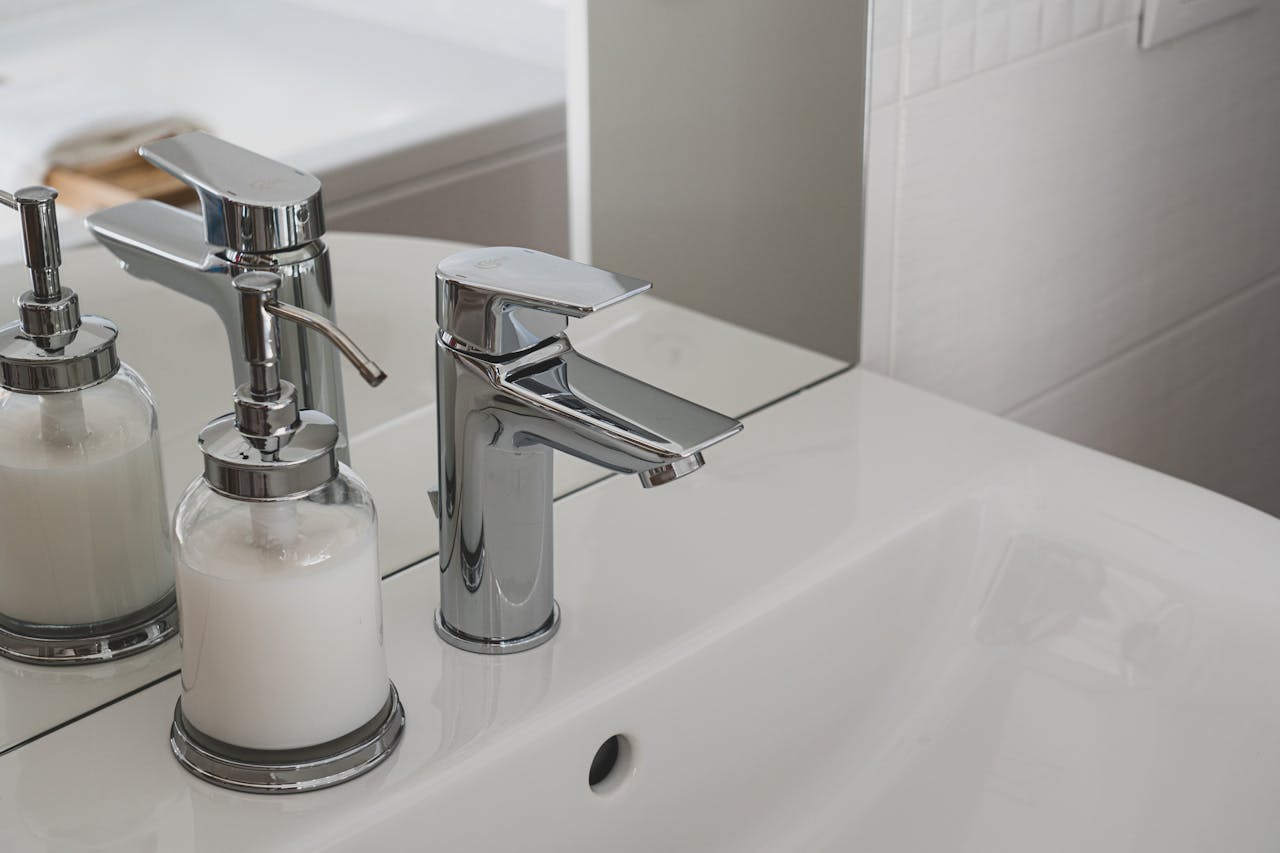
Upgrading your kitchen or bathroom can feel empowering, but it also comes with rules you might not expect. In Georgia, homeowners often wonder if installing a new sink could lead to a permit violation. The answer isn’t always straightforward. Permit requirements vary by city and county, and the consequences of skipping permits can be costly. Understanding the risks helps you avoid fines, delays, and even problems when selling your home. If you’re planning a home improvement project, knowing when you need a permit is a key part of responsible ownership—especially for something as common as a new sink installation.
1. What Counts as a Permit Violation in Georgia?
The term “permit violation” refers to any work done without the necessary approval from local authorities. In Georgia, this includes changes to plumbing systems, electrical wiring, or structural components. When it comes to installing a new sink, the rules depend on the scope of the project. If you’re only replacing an old sink with a similar one and not altering the plumbing, you might not need a permit. However, if the installation requires moving pipes, adding new drains, or modifying water lines, you could be at risk of a permit violation in Georgia.
Local governments set their own building codes and permit rules. Some municipalities are stricter than others. Always check with your city or county’s permitting office before starting work. This step can save you money and headaches later on.
2. When Is a Permit Required for a New Sink?
For many homeowners, the main concern is whether the project triggers the need for a permit. In Georgia, the difference often comes down to the level of plumbing work involved. Swapping out an old sink for a new one in the same location with no piping changes typically does not require a permit. But if you are moving the sink, adding new plumbing lines, or making any changes that affect the water supply or drainage system, a permit is usually needed.
This rule aims to ensure that plumbing work meets safety codes and doesn’t create hazards. Unpermitted changes could cause leaks, water damage, or even serious health issues from improper drainage. If you’re unsure, it’s wise to consult your local building department or a licensed plumber familiar with Georgia’s permit rules.
3. Risks of Skipping the Permit Process
Skipping permits might save time upfront, but it can lead to bigger problems later. If you’re caught in violation, you may face fines, be ordered to undo the work, or have trouble with your homeowner’s insurance. Insurance companies may deny claims related to unpermitted plumbing work, leaving you responsible for costly repairs.
Permit violations in Georgia can also affect your home’s resale value. During a sale, inspectors or buyers may flag unpermitted work, leading to delays or price negotiations. It’s not uncommon for sellers to be forced to bring work up to code before closing. Taking shortcuts with permits is rarely worth the risk.
4. How to Check Local Requirements
Building codes and permit rules differ across Georgia. Atlanta, for example, has its own permit guidelines, while rural counties may be more lenient. The best way to avoid a permit violation in Georgia is to contact your local building or permitting office. Many cities post guidelines online, but a phone call can clear up any confusion.
Some municipalities also require permits for work done by licensed professionals, not just DIYers. Even if a handyman or plumber says a permit isn’t needed, double-check with officials. This extra step ensures you’re protected from unexpected violations.
For more information on state-wide plumbing codes, visit the Georgia Department of Community Affairs Construction Codes page. This resource outlines the basic codes, but always confirm specifics with your local agency.
5. The Role of Licensed Professionals
Hiring a licensed plumber can help you navigate permit requirements. Professionals understand local codes and can pull the necessary permits for you. This is important if your project involves anything beyond a simple sink swap. Licensed plumbers are also more likely to do work that passes inspection, reducing your risk of a permit violation in Georgia.
Some homeowners try to save money by handling plumbing work themselves. While DIY can be satisfying, it comes with risks if you’re not familiar with local codes. If you’re unsure about the rules or scope of your project, getting expert advice is a smart move.
Practical Steps to Avoid Permit Trouble
Before you start your sink installation, make a checklist. First, determine if your project involves changes to plumbing or structure. Next, contact your local permitting office to ask about requirements. Keep records of any permits you obtain and inspections completed. If you hire a professional, confirm that they’re handling the permit process correctly. These steps help you avoid a permit violation in Georgia and the headaches that come with it.
When in doubt, err on the side of caution. The cost of a permit is usually much lower than the expense of fixing a violation later. Staying informed protects your investment and your peace of mind.
Have you ever encountered permit issues when installing a new sink or undertaking a home project in Georgia? Share your experiences or questions below—we’d like to hear your stories.
What to Read Next…
- 7 Times Diy Plumbing Turned Into A Homeowner Lawsuit
- 6 Common Home Repairs That Require A Permit But No One Gets One
- 5 Tips For Making Sure Your Home Renovations Go Smoothly
- 10 Diy Kitchen Fixes That Lead To Expensive Structural Problems
- 7 Diy Home Repairs That Are Illegal In Some States But Most Don’t Know It
The post Can Installing a New Sink Trigger a Permit Violation in Georgia? appeared first on Clever Dude Personal Finance & Money.







